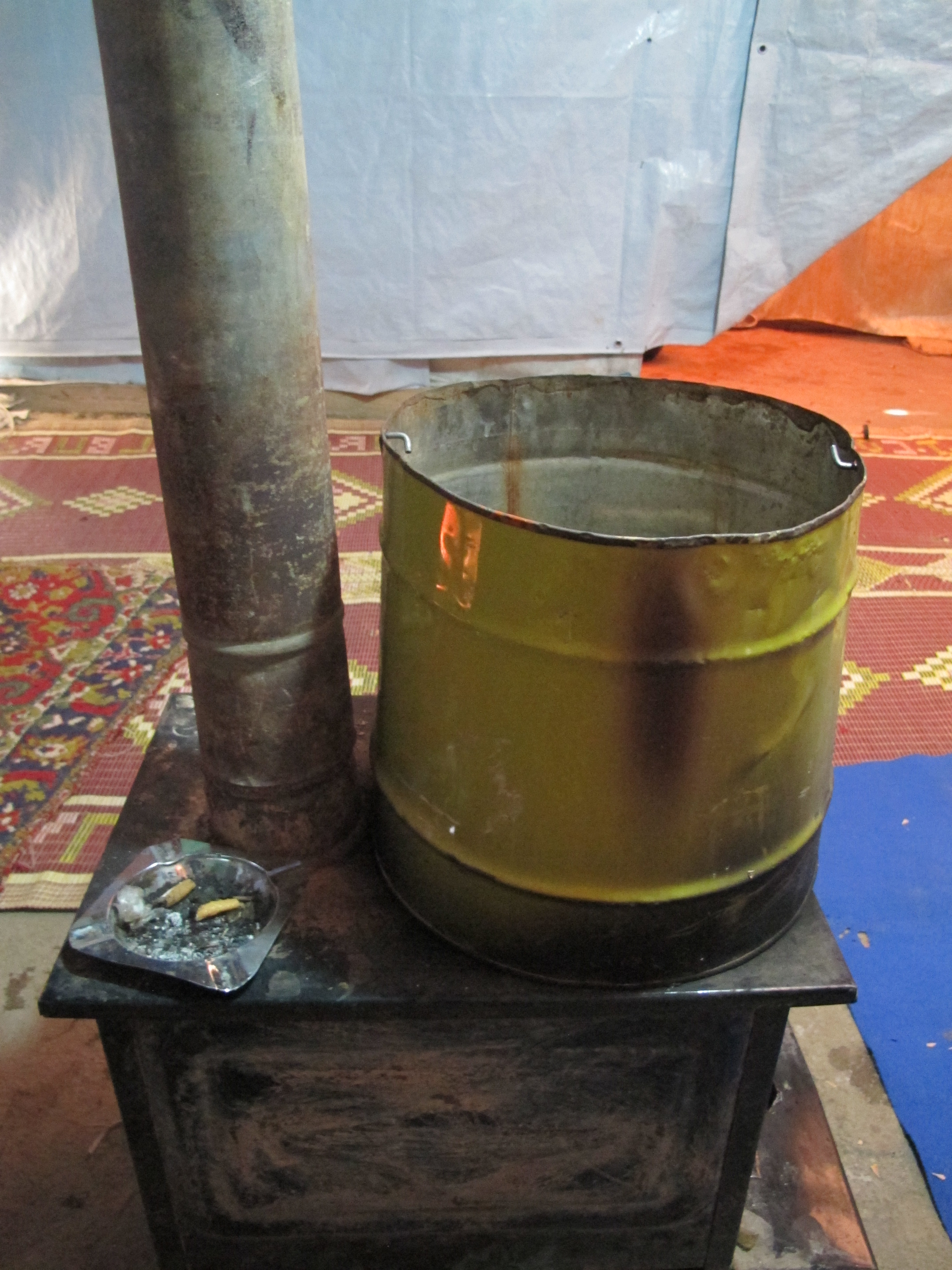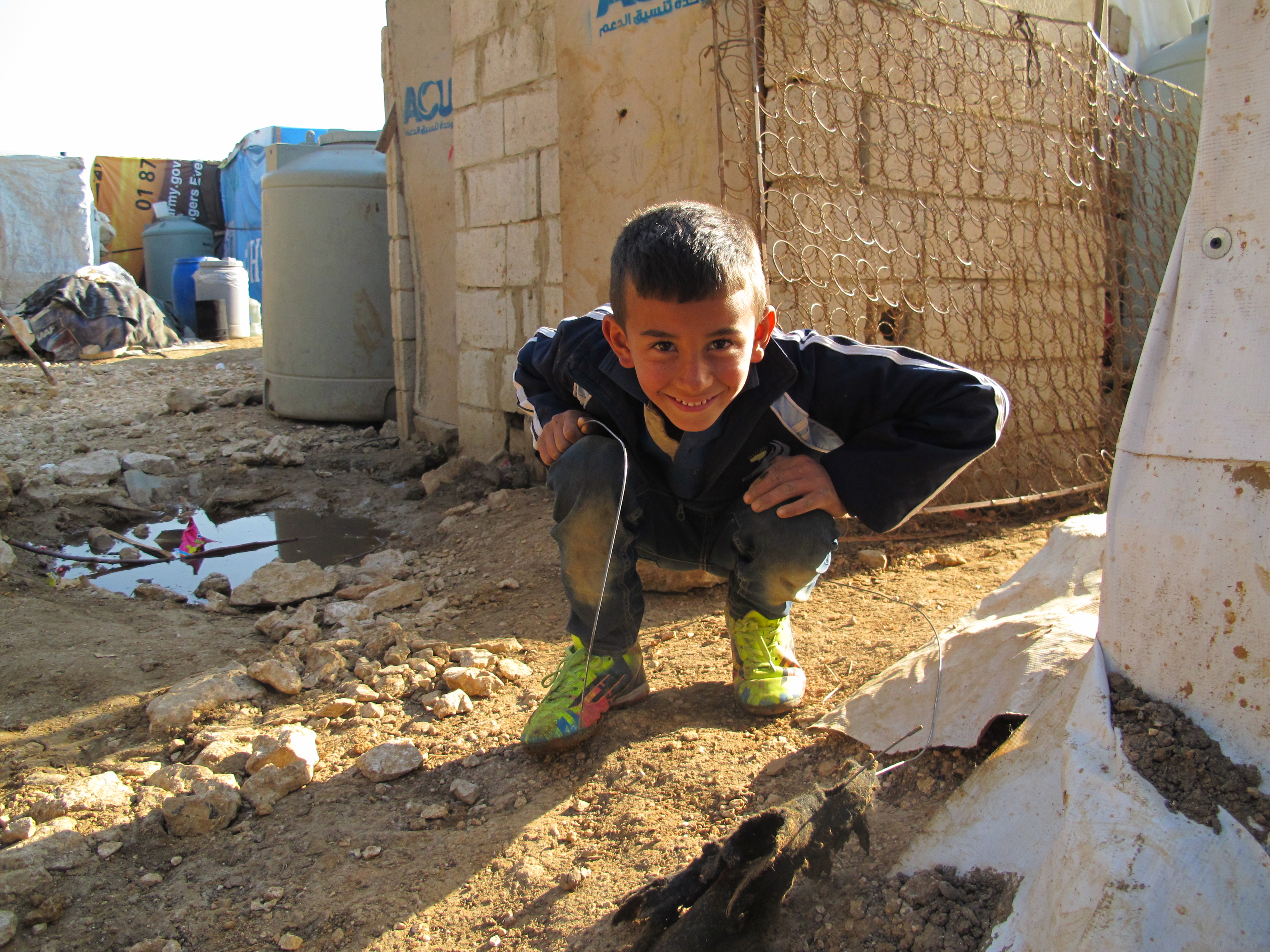Refugee crisis: A message from Lebanon
Mark Chamberlain is a communications officer with CAFOD. He spent time with refugees in Lebanon’s Bekaa Valley in December 2015. On International Families Day, he writes about meeting some of the families there.
Razir is a 40-year-old mother of five. It was just after 11 in the morning when I visited her tent.
She offered for me to sit down on the only blanket the family had. I declined, blew into my hands to keep them warm and chose the bare floor instead. It was like sitting on ice.
Send a message of hope to refugees today
I could see the white clouds our breath was making inside the tent and looked at the thin, tarpaulin walls and ceiling; they were little more than a marker, a signifier of ‘home’, a private area to call ‘ours’. The tarpaulin might keep the worst of the rain and snow out, but the walls meant nothing – winter was inside as well as out.
“The cold is like death”
“The cold?” Razir said when I asked her what it was like here last night. “The cold here is like death.”
Razir picked up the blanket she had offered me, it was one of the family’s only possessions. It was the size of a bath towel. One of her daughters peered through the holes in it as she showed me.
There was a heater in the middle of her tent, but no fuel. Fuel costs. Razir had to make monetary choices. With very little in her pocket, she had to consider the essentials: food.

Leaving her children
Razir had left her home in Syria because her home town came under fire. After her husband was kidnapped and shot, she tried to stay with her children, but things became too dangerous. They had to leave, but she faced a dilemma no mother wants to face: she only had enough money to pay for three of her five children to escape to Lebanon with her. She had no choice, but to leave her two eldest daughters.
Give to our Refugee Crisis Appeal
When I walked out of Razir’s home, it was after twelve. There was a bright sun, but the temperature was still cold. I rubbed my hands together and breathed into my palms. I look at my notes from then:
“Rows of tents. The same shapes: uniform rectangles. Skeleton frames made from cheap/salvaged wood. The same UN-stamped tarp. Row upon row in the camp; camp upon camp in the Valley.”
I visited other families that day. A cab driver called Mahmoud who was traumatised from the loss of his wife. A doting father called Mohammed who had last seen his daughter on the day of her wedding when bombers flew over and attacked their town. A struggling mother called Ghazyeh whose husband was killed while he was shopping for food at the market.
Learn more about the people with our ‘Lost Family Portraits’ project
“I want my voice to be heard”

The temperature dropped later in the afternoon and a freezing wind blew across the valley. As I got ready to leave the camp, I saw a young boy playing with a small piece of cloth attached to some wire. I crouched and took a picture of him. He crouched down in front of me, mirroring what I was doing, and smiled. I smiled.
We both knew we couldn’t talk to each other, but we were trying to communicate.
It brought back some of the final words Razir said to me, words that Mahmoud, Mohammed, Ghazyeh and so many others echoed: “I want you to tell my words to the people in your country. I want my voice to be heard, please do this for me.”